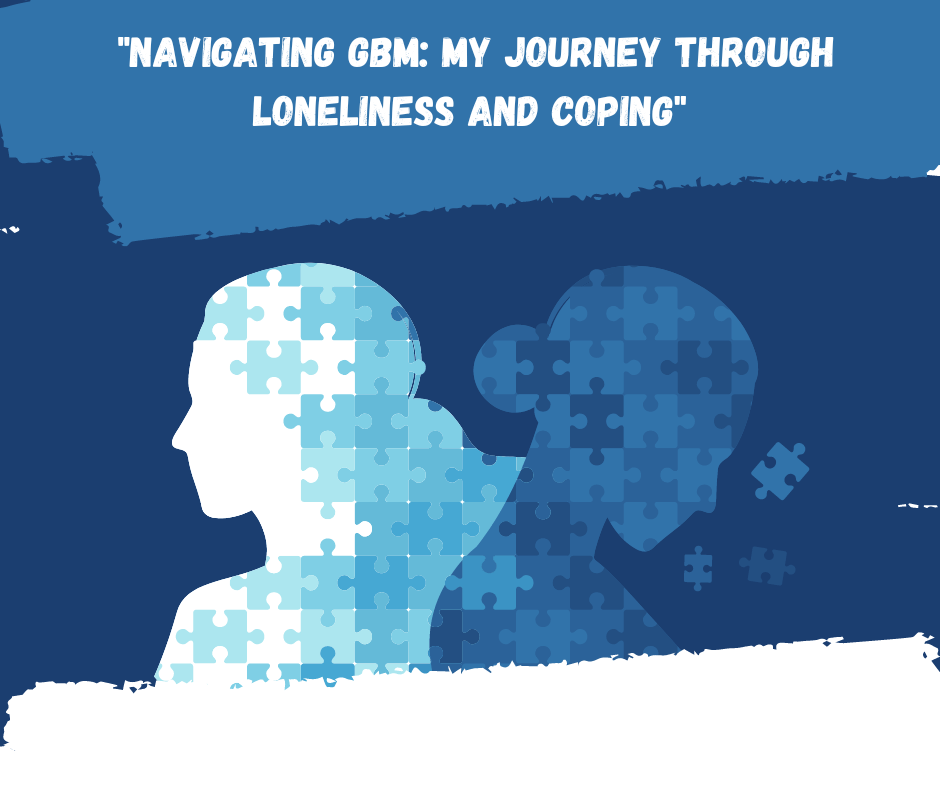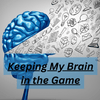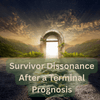Navigating GBM: My Journey Through Loneliness and Coping

Navigating GBM: My Journey Through Loneliness and Coping
Four Months Into GBM: Loneliness, Love, and Learning to Breathe Again
As someone who has been grappling with a diagnosis of Glioblastoma Multiforme (GBM) for just four months, I can tell you firsthand that this journey is anything but linear. It is a brutal emotional rollercoaster. There have been moments of strength, hope, and even laughter, but also intense waves of fear, grief, and soul-deep exhaustion. It is a storm you are never fully prepared for. One day, you are laughing over coffee, and the next, you are staring at an MRI scan wondering if this will be your last “normal” memory. Devastating does not begin to describe it.
The reality no one talks about enough is how profoundly isolating this disease can be. Even when you are surrounded by people, there is a part of this battle you face alone—because no one else is inside your body or your brain. The silence at night is the worst. That is when fear sneaks in like a thief, stealing peace, planting doubt. Every twitch, every tingle, every headache becomes a question: “Is this it?” You start analyzing your body like a scientist, looking for evidence of recurrence or progression. Hypervigilance becomes your constant, unwanted companion.
I have found myself stuck in mental loops of “what ifs” that feel impossible to escape. What if this next scan shows growth? What if I do not get another year? What if I am not here for the holidays? The weight of these thoughts is immense—relentless, crushing, paralyzing. But somehow, we still get up. We keep going. That in itself is a kind of bravery. Not the dramatic, movie-style heroism, but the quiet, gritty kind that lives in early morning blood draws and late-night tears.
While I am no expert—just a fellow fighter trying to find his way—I have discovered a few things that help me hold on. First and most significantly: writing. Writing has been my saving grace, my oxygen mask, my soul’s release valve. Starting this blog was not for popularity or profit—it was a survival strategy. It became a place where I could scream into the void, pour out my emotions, and let the pressure off before it consumed me. Vulnerability is powerful. Whether five people read it or fifty, it gives purpose to the pain.
My blog is not curated or filtered. It is raw, real, and mine. Sometimes I write about cancer. Sometimes I write about what I ate that day or how I am frustrated with my body. There are no rules. But the act of writing gives structure to the chaos. It helps me feel less like a victim and more like a person who still has something to say—something that matters. Expression has become my quiet rebellion against the silence that cancer tries to impose.
The second thing that has helped me deeply: support groups. Online, in person, formal or casual—it does not matter. What matters is that you are seen. When you connect with others who are walking a similar road, it shatters that invisible wall of loneliness. Suddenly, someone else knows what you mean when you talk about scanxiety. Someone else understands how terrifying it is to feel dizzy out of nowhere, or how tiring it is to explain your diagnosis to the hundredth person. There is relief in being understood.
Beyond emotional comfort, support groups also provide practical guidance. Everyone’s journey with GBM is different, but when you gather knowledge from multiple voices, you start to build a toolbox. Maybe one person recommends a nutrition change, another a supplement, and another shares what they told their doctor to finally get taken seriously. It all adds up. That shared wisdom becomes empowering. It reminds you that even though this disease tries to make you feel powerless, you still have choices. You still have a say.
Lastly, and perhaps most importantly, nothing has kept me grounded like love—specifically the unwavering love of my husband and family. My husband is my rock, my safe space, my reality check when fear clouds my vision. My family, both immediate and in-laws, have stepped up in beautiful, compassionate ways I will never forget. Love like that gives you a reason to fight harder. It helps you push through the fatigue and keep showing up, even when your body feels like a war zone. Their devotion gives me strength I did not know I had.
But I also want to be real. Not everyone has a spouse or a family that shows up. If that is your reality, I want you to know you are still worthy of love, still deserving of support. Find your chosen family. Return to my earlier point about support groups—because in those rooms (virtual or otherwise), you may find your tribe. The people who will cheer you on. The ones who will cry with you without trying to fix you. Those connections can be just as transformative.
Sometimes, people assume strength means never falling apart. That is a lie. True strength is allowing yourself to be human. It is asking for help. It is crying in the car and then walking into treatment anyway. It is choosing hope even when it feels ridiculous. GBM tries to strip away your identity, reduce you to a diagnosis. But you are still you. You are still here. And every moment you fight to keep your humanity intact is an act of defiance.
I am not writing this because I have answers. I am writing this because if you are reading it, you need to hear that you are not crazy for feeling the way you do. You are not weak for being scared. You are not broken because some days you just want to scream. That is part of the process. That is part of surviving. There is power in owning your truth, even if it is messy, even if it is painful.
So, what do I want you to take away from all this? That you are not alone. That there are tools—writing, community, love—that can help you find your footing again. That it is okay to be angry, to be lost, to grieve the life you had before diagnosis. But also—please believe me when I say—you can still find joy. It might look different now. Smaller. Quieter. But it is there. In a text from a friend. In a laugh during treatment. In a stranger’s kindness. These moments are not just distractions—they are lifelines.
In summary, living with GBM is an intense, overwhelming, soul-altering experience. But even within the fear, there is room for connection. Even within the pain, there is a flicker of purpose. Even when the future feels like a question mark, there is still a way to write your story. And if you cannot find the words, just know that mine are here—waiting, steady, and hopeful—for you to borrow.
Because, Warrior, you are not alone.



 NEW ARRIVALS
NEW ARRIVALS APPAREL
APPAREL GIFT AND HOME
GIFT AND HOME COLLECTION'S
COLLECTION'S HOPE HUB
HOPE HUB BLOG
BLOG



